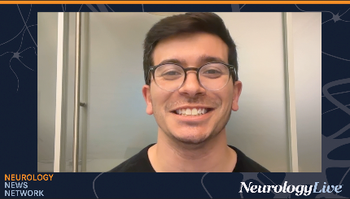
Neurology News Network. for the week ending June 21, 2025. [WATCH TIME: 4 minutes]

Neurology News Network. for the week ending June 21, 2025. [WATCH TIME: 4 minutes]

Take 5 minutes to catch up on NeurologyLive®'s highlights from the week ending June 20, 2025.

A panel of neuromuscular experts emphasized the importance of interdisciplinary care in helping improve quality of life and outcomes among patients living with ALS. [WATCH TIME: 4 minutes]

Biogen recently launched a pivotal phase 3 trial for omaveloxolone, aiming to explore its safety and efficacy in pediatric patients with Friedreich ataxia.

Omonigho Michael Bubu, MD, PhD, an associate professor of psychiatry, neurology, & population health at NYU Langone, discussed how OSA contributes to Alzheimer disease risk through race- and sex-specific mechanisms and neurodegenerative biomarkers.

Experts discussed promising developments in ALS treatment, including gene-targeted therapies, emerging biomarkers, and AI-powered tools for diagnosis and patient support. [WATCH TIME: 5 minutes]
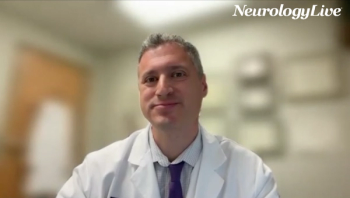
The director of outpatient care at Jefferson Headache Center weighed in on the future of PACAP as a migraine target and previewed upcoming innovations at the 2025 AHS Annual Meeting. [WATCH TIME: 3 minutes]

Anita Shelgikar, MD, a clinical professor at the University of Michigan and president of the American Academy of Sleep Medicine, provided post-conference perspectives on the 2025 SLEEP meeting, giving clinicians insights on the latest in research and treatment updates.

Helius Medical Technologies expands access to its PoNS device for patients with MS as Aetna joins major payers in coverage, enhancing treatment options.

Marketed as the first drug to target both BLyS and APRIL, Telitacicept may offer a revolutionary treatment option for patients with myasthenia gravis.

Atogepant outperforms topiramate in migraine prevention, showcasing superior efficacy and safety in the phase 3 TEMPLE trial results.

Centessa Pharmaceuticals initiates Phase 1 study for ORX142, a novel orexin receptor agonist targeting neurological disorders, promising new treatment avenues.

The associate vice president of strategy and innovation at the National MS Society highlighted the measurable benefits of health and wellness coaching for individuals with multiple sclerosis. [WATCH TIME: 5 minutes]

The director of the John A. Schafer, MD Multiple Sclerosis Achievement Center at Dignity Health discussed the effect of loneliness and social isolation on individuals living with multiple sclerosis.

The ExTINGUISH trial investigates inebilizumab's efficacy for NMDAR encephalitis, aiming to enhance treatment options for diverse patient populations.
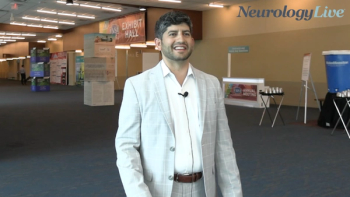
The assistant professor of neurology at the Medical College of Wisconsin talked about the complexities of advanced multiple sclerosis, highlighting gaps in clinical trials and the need for individualized care strategies. [WATCH TIME: 3 minutes]
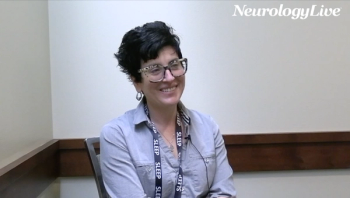
The neuropathologist at Mayo Clinic Florida discussed why EEG-based sleep biomarkers may help detect Alzheimer disease earlier and how they could enhance clinical trial design. [WATCH TIME: 3 minutes]

Recent MR analysis uncovers protein associations with neuromyelitis optica spectrum disorder, suggesting new treatment pathways and drug targets for improved management.

The chief executive officer of Restful Sleep MD emphasized the importance of tailoring pediatric sleep interventions to each family’s unique structure, values, and challenges. [WATCH TIME: 5 minutes]

Roche advances prasinezumab into phase 3 trials for Parkinson disease, aiming to explore its potential as a disease-modifying treatment.

Researchers uncover a latent infection model for Creutzfeldt-Jakob disease, revealing insights into its mysterious origins and potential triggers.

The director of sleep health at Flinders University discussed the latest clinical advances in pharmacotherapy, precision treatment targets, and combination strategies for obstructive sleep apnea.

New long-term data support ecopipam's safety and sustained efficacy in reducing tics and improving quality of life in pediatric Tourette syndrome.

Deepa Burman, MD, FAASM, co-director of the Pediatric Sleep Evaluation Center at UPMC Children’s Hospital of Pittsburgh, discussed the potential contributors to pediatric insomnia and the role of a thorough assessment for effective management.

Here's some of what is coming soon to NeurologyLive® this week.

The director of the DMD Program at UMass Chan Medical School shared her experience at the 2025 CureDuchenne FUTURES National Conference, held May 22-25, in San Antonio, Texas. [WATCH TIME: 5 minutes]

Test your neurology knowledge with NeurologyLive®'s weekly quiz series, featuring questions on a variety of clinical and historical neurology topics. This week's topic is on Migraine Awareness Month

Avidity Biosciences advances del-brax for FSHD, initiating a pivotal Phase 3 study while exploring accelerated FDA approval pathways.

Daniel Mikol, MD, PhD, chief medical officer at NervGen Pharma, provided clinical perspective on recently announced positive findings from a phase 1b/2a trial testing NVG-291 as a treatment for spinal cord injury.
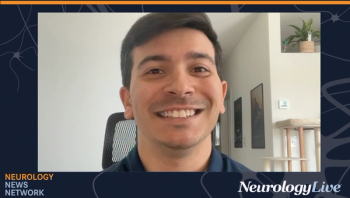
Neurology News Network. for the week ending June 14, 2025. [WATCH TIME: 4 minutes]